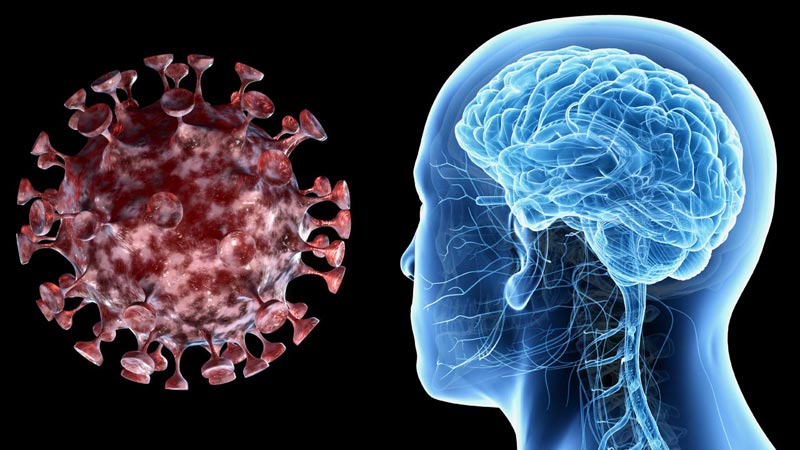Coronaviruses are a group of viruses that causes diseases ranging from cold to various respiratory disorders like MERS-CoV and SERS-CoV. The novel coronavirus is a new type that is not seen in humans before. They are transmitted between animals and humans. They cause infection in the nose, sinuses, upper throat. COVID-19 is one of the types of coronavirus. It is caused by SARS-CoV-2 that causes mainly a respiratory tract infection.Covid-19 is a contagious disease ranging from mild to severe condition spreads through the infected person. It was emerged from Wuhan, China, and spread around the world.

Symptoms
The most common symptoms of COVID-19 are
- dry cough,
- fever, and
And other less common symptoms include
- sore throat,
- diarrhea,
- aches,
- headache,
- loss of taste and the smell, etc.
COVID often leads to a condition like pneumonia, respiratory failure, or even death. An infected patient exhibits to show the visible symptoms in about 4 to 5 days. However, it can be up to 14 days also.
The best way to prevent this is a straightforward but compelling way. That is always to wear a mask, practice social distancing and wash your hands and faces regularly with soap. By following these steps, you are not only protecting yourself but others too.
To the present situation, there are no vaccines available. But the scientists are continually working on it. Some vaccines are generated but need to be tested to give better results. The vaccines are under various phases of research and testing.
After-effects of COVID-19
Despite the person affected by COVID-19 has undergone treatment and revived from the disease, his/her body can show some after-effects. Some of these include fatigue, breathlessness, memory and cognitive decline, stress and anxiety, aches, mental illness, etc.
Due to the long term medication, the patient can feel tired and tiredness even after the treatment. The patient will have unbalanced energy, which causes aches and pains in different parts of the body. For some patients, after the recovery, one of the main problems of COVID that is shortness of breath can persist for sometimes. Feeling out of breath and palpitations are the second most common after-effect. The patients who are made to go quarantine for a long time can evolve psychological problems like stress, anxiety, depression, etc. It can also cause insomnia and OCD type problems.
Covid-19 and risk of memory loss
As discussed, one of the after-effects of COVID is memory loss. Of all the other profound ways COVID-19 affects the body, one of the frightening is it can affect the brain. The patients suffering from the disease show neurological problems like loss of smell, taste, the chance of stroke, etc. It can also cause a more prolonged impact on the brain, causing chronic fatigue syndrome and Guillain Barre Syndrome. This may be caused due to the direct infection of the virus to the brain cells. Still, there are indirect causes because of the condition of the virus through the immune system or other resulting neurological changes preceding COVID-19.
During the infection, the symptoms like runny nose or fever that the body is showing are because of the protective responses of the immune system. This happens when the immune cells in the brain get activated, causing a reaction or protection. The reactions like fever or social withdrawal help the body to cope up with the infection.
For instance, the high temperature will prevent the growth of viruses by killing them, and social withdrawal will help to prevent the spread. During illness, the immune systems in the brain become activated and sent signals that modify the interaction with neurons, like changing the shape of the cells, enveloping the affected cells, etc. But during these changes, they can also destroy the neural connections that enable memory.
It can lead to the loss of connection between neurons that store memories. In the case of COVID 19, there is a massive release of these signals, which can have both short term and long term effects like Alzheimer’s disease. During an illness, both the brain and the immune system evolve to cope up with the situation.
In the brain, the changes in transactions between the neurons help us to store the memory and also to react to the situation. The immune systems provide antibodies to fight viruses. Yet there is a chance for long-lasting changes in the brain after an illness that causes age-related problems like dementia and Alzheimer’s.
The destructive action of the immune system can permanently kill the memory neurons, which can cause impaired memory due to the destruction of neural connections or due to the change in the functioning of neurons.
The effect of COVID-19 in memory can also depend on other illnesses like heart problems or other major surgeries. Those patients show a more lasting impact, especially during aging. Now even a mild inflammation, including chronic stress, is recognized to cause memory loss like dementia during aging. And the studies show that even without the infection of the virus if there is a short term immune response like inflammation can eventually lead to a long term memory loss effect.
The risk of having long term memory loss can be overcome to some extend by medication. The prevention and treatment of the disease can decrease the duration of inflammation and illness. The vaccinations can reduce the chance of Alzheimer’s disease by suppressing the excess immune activation and inflammation of the brain.
Conclusion
With the current pandemic with a significant virus outbreak, it is critical to exhibit care on self and others. One of the crucial things we can do for that is to follow the medical protocols correctly. Always remember to protect yourself and others by knowing the facts and taking the precautions. Be kind to yourself; if you are feeling stress or other problems, don’t forget to reach out. Always keep in mind, remember that “prevention is said to be better than being infected and later look for a cure.”